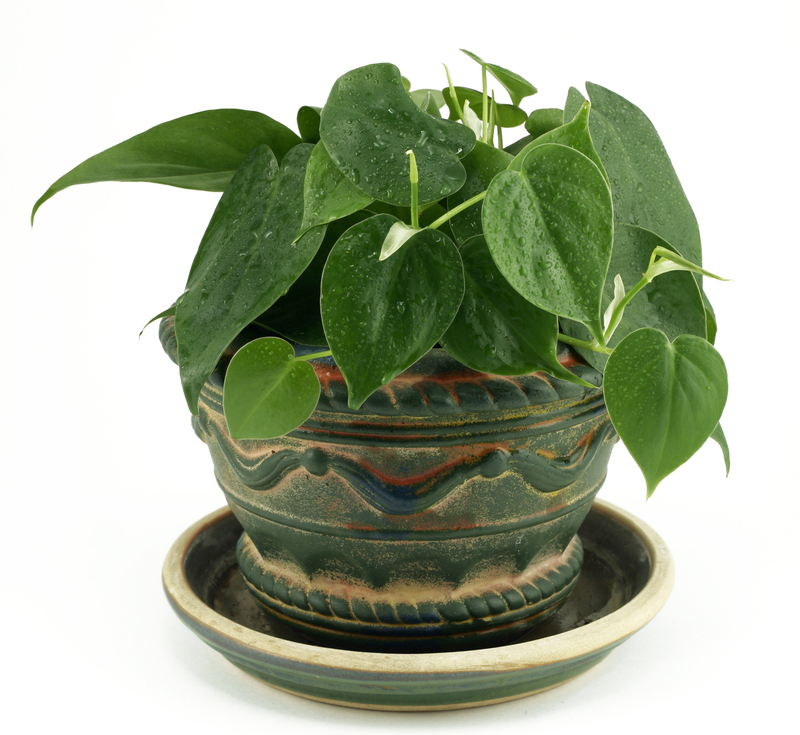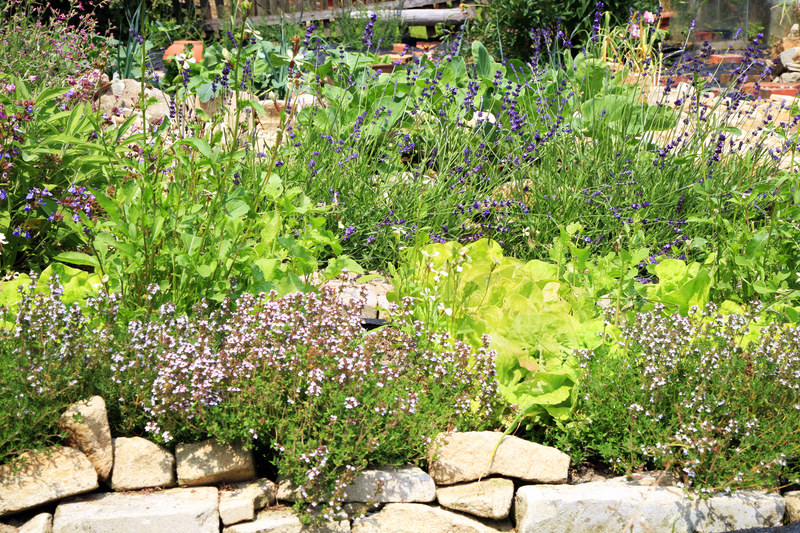Set the Foundation with 9 Key Gardening Tips for Starters
Posted on 01/09/2025
Set the Foundation with 9 Key Gardening Tips for Starters
If you're aspiring to create a flourishing outdoor oasis or simply wish to enjoy fresh herbs and vegetables at your fingertips, it all starts with laying the right groundwork. Gardening for beginners can seem overwhelming, but by absorbing the essential advice and quick wins in this guide, you'll be well-equipped to nurture a vibrant, healthy garden -- no green thumb required! Explore our nine most important gardening tips for newbies, perfect for anyone eager to dig into this rewarding hobby.

Why Start Gardening?
There's a certain magic to planting a seed and watching it transform into a thriving plant. Gardening offers undeniable physical, mental, and even social benefits. With your hands in the soil, you can enjoy:
- Improved physical health through light exercise and exposure to nature;
- Stress relief and relaxation from mindful outdoor activity;
- Home-grown produce for fresher meals and lower grocery bills;
- Enhanced outdoor aesthetics and property value.
But, as with any new endeavor, success hinges on a solid foundation. Begin your gardening journey confidently by mastering the following core tips.
1. Choose the Right Location for Your Garden
Sunlight is crucial. Most vegetables, herbs, and flowering plants thrive best with at least 6 hours of direct sunlight each day. Before breaking ground or filling your containers, monitor how sun and shade move through your outdoor space.
- Look for shelves, patios, or in-ground spots that bask in sunlight;
- Avoid shadowy areas near large trees or building overhangs.
If all you have is limited sunlight, don't worry! Certain greens, herbs, and flowers like lettuce, parsley, and impatiens will tolerate partial shade.
Container and Raised Bed Gardening
If your yard is small or you only have a balcony, container gardening or raised beds are great alternatives. Just be sure they receive adequate light and have proper drainage.
2. Understand Your Soil and Amend It
Healthy soil equals healthy plants. Before sowing a single seed, spend time assessing your soil's composition. Most starter gardens will benefit from some soil improvement:
- Test your soil for pH and nutrient content using inexpensive kits from your local garden center;
- Amend clay-heavy soils by adding compost or sand to improve aeration and drainage;
- Boost sandy soils with organic material to help them hold water and nutrients better.
Never underestimate the power of good compost. Not only does it boost fertility, but it also encourages healthy microbial life and improves soil texture, giving roots the best start possible.
3. Select the Right Plants for Your Region
One key factor for beginner gardening success is choosing plants that are well-suited to your climate and soil. Study your region's USDA Hardiness Zone or equivalent, and consult local gardening websites or extension services for lists of easy-care plants.
- Native plants will often thrive with less care and watering;
- Cool-season crops like lettuce and peas are perfect for spring and fall;
- Warm-season crops such as tomatoes and basil flourish in summer heat.
Consider starting with sturdy, beginner-friendly plants such as marigolds, sunflowers, zucchinis, radishes, or herbs like mint and chives.
4. Start Small and Expand Gradually
It's tempting to dream big, but new gardeners benefit most by keeping things manageable. Choose a small garden plot or a handpicked selection of containers. As you master the basics and gain confidence, add more plants and beds gradually.
- Focus on a handful of crops or flowers that you love to eat or display;
- Read plant labels for spacing requirements to avoid overcrowding;
- Track your progress and learn from each season's results.
A modest, well-maintained starter garden provides more learning (and enjoyment!) than an unruly, oversized plot.
5. Practice Consistent Watering Techniques
Watering is both an art and a science. Too much, and roots suffocate. Too little, and plants wilt. The secret? Consistent, deep watering that encourages deep root growth.
- Water in the morning when less moisture evaporates and leaves dry quickly;
- Soak the root zone rather than misting leaves - use a watering can or soaker hose;
- Check soil moisture by sticking your finger about an inch deep - water only if it feels dry.
Most gardens prefer 1-2 inches of water per week, but weather and soil differences mean your mileage may vary. Container gardens dry out faster and may need daily attention in hot weather.
6. Feed Your Plants with the Right Fertilizer
Every plant needs a balanced diet to thrive. Nitrogen, phosphorus, and potassium are the main "macronutrients" plants consume, available in various fertilizer blends.
- Use a slow-release, organic fertilizer for beginner gardens;
- Avoid overfeeding which can burn roots and damage the environment;
- Apply fertilizer in spring and again in midsummer for most vegetables and flowers.
Compost and well-rotted manure are fantastic natural options that support garden health year-round.
7. Mulch to Retain Moisture and Block Weeds
A layer of mulch not only makes your garden beds look tidy but also works wonders behind the scenes. Mulching helps your soil retain moisture, prevents weed seeds from sprouting, and even moderates soil temperature in extreme weather.
- Organic mulches like straw, shredded leaves, and bark chips decompose to enrich soil;
- Apply 2-3 inches around plants but keep it away from stems to prevent rot;
- Top up your mulch each season for the best results.
Mulching is one of the most effective, low-effort gardening tips for maximum returns.
8. Watch for Pests and Diseases Early
Prevention is easier than cure. The sooner you spot problems, the less damage they'll do. Get in the habit of inspecting your plants a few times each week.
- Check under leaves for eggs, insects, or signs of damage;
- Remove pests by hand or use organic treatments, like insecticidal soap;
- Keep your garden clean by removing dead leaves and debris;
- Encourage beneficial insects like ladybugs and lacewings to control pests naturally.
Diverse, healthy gardens are less likely to suffer from outbreaks, so rotate your crops and plant a variety of species.
9. Embrace Learning and Patience
Perhaps the most vital gardening tip for beginners: gardening is a journey, and every mistake is a lesson. Embrace the seasons, celebrate small successes, and remember that plants are patient teachers.
- Keep a garden journal to track what works (and what doesn't);
- Ask for advice at local nurseries, garden clubs, or online forums;
- Don't be discouraged by the occasional lost plant.
With time, your skills and confidence will both blossom. Have fun, try new things, and savor the rewards of homegrown beauty and flavor.

Bonus: Gardening Tools Every Beginner Needs
All the tips in the world are easier to follow with the right gear. For a basic starter gardening toolkit, consider:
- Gloves: Protect your hands from thorns and blisters;
- Trowel and hand fork: For digging and planting;
- Watering can or hose: Aim for one with a gentle spray nozzle;
- Pruners: Essential for shaping and harvesting;
- Spade and rake: Handy for preparing beds and soil.
Summary: Your Strong Foundation for Gardening Success
There's no single perfect way to start a garden, but applying these nine fundamentals sets you up for thriving results and ongoing pleasure. To recap, lay your foundation by:
- Choosing a sunny spot;
- Improving your soil;
- Selecting the right plants;
- Starting small;
- Watering properly;
- Feeding with care;
- Mulching efficiently;
- Monitoring pests/diseases;
- Continuing to learn and enjoy the process!
Remember, even expert gardeners began with just a few seeds and a patch of earth. With each season, your garden (and your know-how) will grow.
Gardening for beginners is about exploration, discovery, and joy. Armed with these key gardening tips, you're ready to set down roots and let your love of plants flourish. Happy gardening!
Latest Posts
How to Shield Your Garden from Weather-Related Damages
Innovative Concepts for Cozy Garden Seating Arrangements
Transform Walls into Gardens with Vertical Gardening

